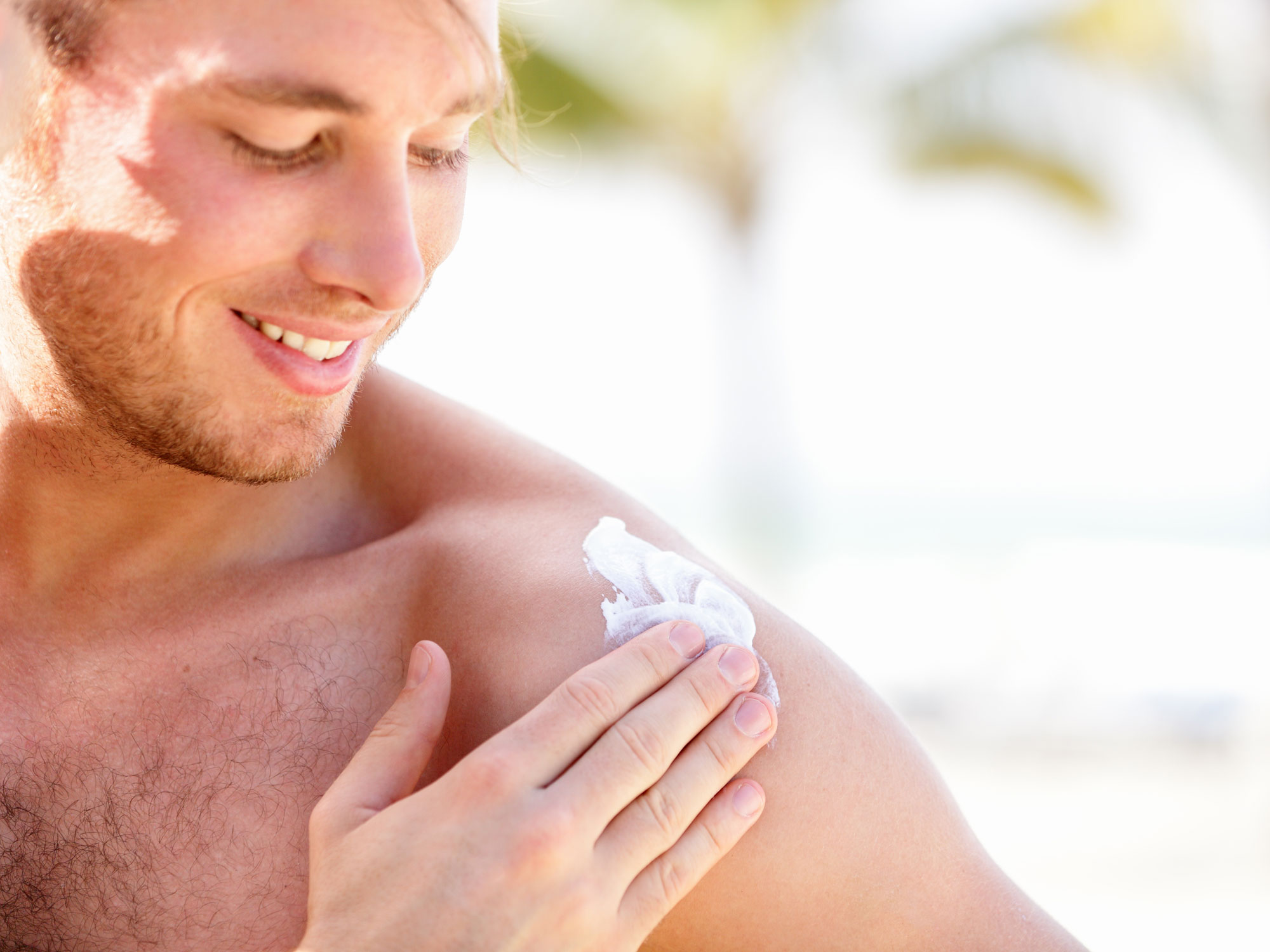Get Easy Health Digest™ in your inbox and don’t miss a thing when you subscribe today. Plus, get the free bonus report, Mother Nature’s Tips, Tricks and Remedies for Cholesterol, Blood Pressure & Blood Sugar as my way of saying welcome to the community!
How sunscreen is screwing with male fertility

For the past 20 years or more, we’ve been brainwashed to believe that we need to slather on sunscreen every day to prevent that innocent mole from turning into something more malicious.
While skin cancer is certainly a serious matter, so are many of the health complications associated with sunscreen. One of the biggest downsides to the overuse of sunscreen is vitamin D-deficiency, which has been linked to illnesses like dementia, schizophrenia, heart disease and multiple sclerosis. Add that to the fact that conventional sunscreens contain cancer-causing chemicals like phthalates and parabens, and you may start using sunscreen a bit more discerningly.
Recently, a Danish study gave men even one more reason to step away from the sunscreen. The study found that certain UV-filtering chemicals in sunscreen are inhibiting sperm cell function and contributing to infertility — an issue that has become increasingly prevalent among males in the developed world.
The primary cause of sunscreen’s anti-sperm properties are chemical UV filters. These UV filters, which are meant to absorb UV rays and prevent them from reaching the skin, are rapidly soaked up through the skin and have been detected in 95 percent of urine samples in both Denmark and the U.S.
This wouldn’t be a problem except for the fact that 45 percent of the UV filters tested in the study interfere with normal sperm cell function, screwing up a sperm cell’s ability to fertilize an egg. Of the 29 UV filters tested, 13 disrupted sperm function…and eight of these 13 filters are currently approved for use in the U.S.
The fertility-reducing culprits include avobenzone, homosalate, meradimate, octisalate (or octyl salicylate), octinoxate (or octyl methoxycinnamate), octocrylene, oxybenzone (or benzophenone-3 or BP-3) and padimate O, all of which can also be found in personal care products that contain sunscreen like lip balm or lotion.
What is even more alarming is the fact that the sperm cell disruption occurred with relatively low exposure to the filters — levels of exposure that most men are easily exceeding with one day trip to the beach.
“This effect began at very low doses of the chemicals, below the levels of some UV filters found in people after whole-body application of sunscreens,” said University of Copenhagen professor and Copenhagen University Hospital researcher Niels Skakkebaek.
This doesn’t mean, however, that you have to resign yourself to a life of sunburn or, even worse, skin cancer. There are safer alternatives that can protect you from the sun while keeping your sperm count intact. Certain plant oils, like calendula oil, can naturally protect skin from the sun. And don’t forget about the fruit that offers skin care protection — from the inside out — annatto.
You can also turn to one of the many natural sunscreens available in stores. These sunscreens usually use zinc or titanium minerals to protect skin from UV rays. Just don’t forget to go sans-sunscreen for at least 10 to 20 minutes per day to get your daily dose of vitamin-D.












